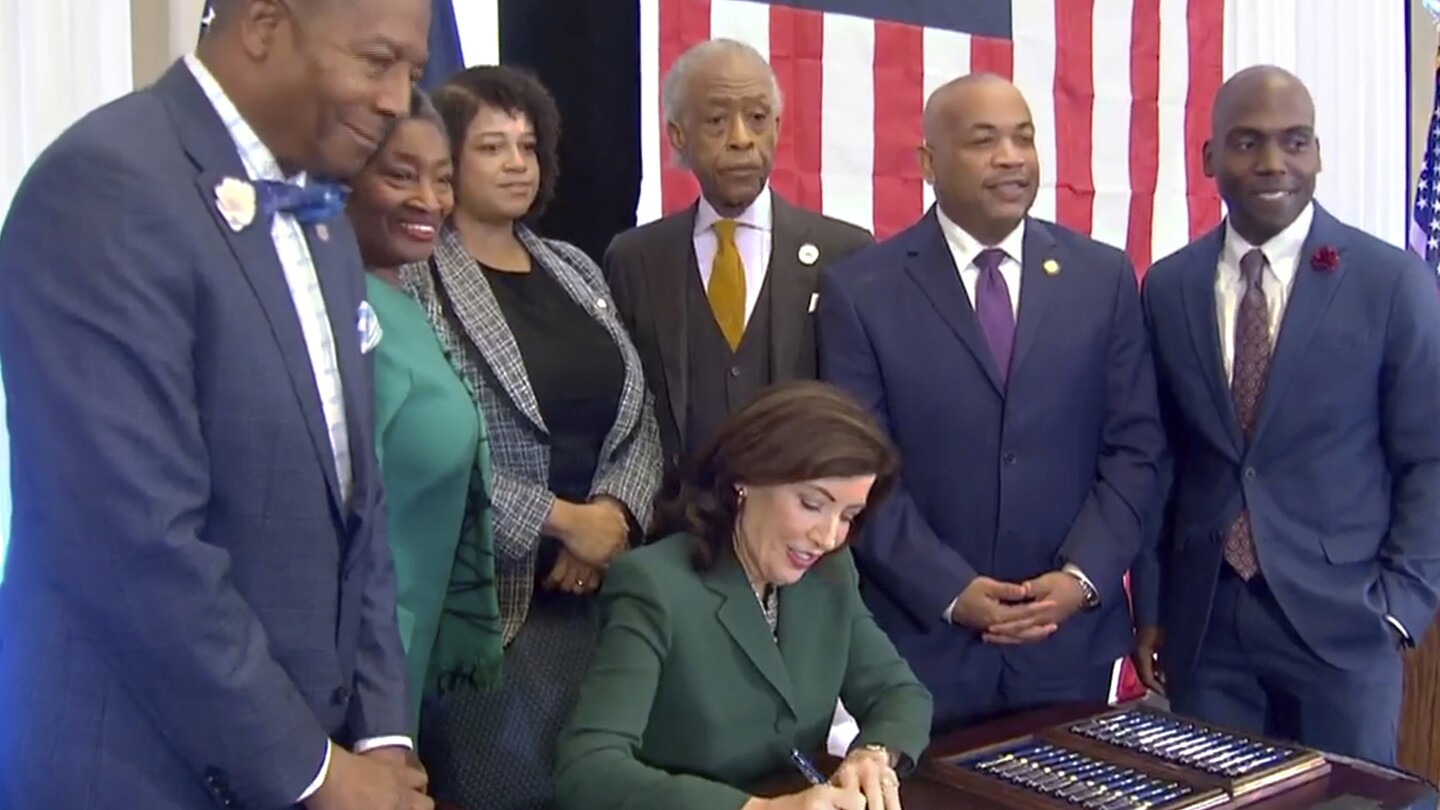New York state will create a commission tasked with considering reparations to address the persistent, harmful effects of slavery in the state, under a bill signed into law by Gov. Kathy Hochul on Tuesday.
It comes at a time when many states and towns throughout the United States attempt to figure out how to best reckon with the country’s dark past, and follows in the footsteps of similar task forces established in California and Illinois.
“In New York, we like to think we’re on the right side of this. Slavery was a product of the South, the Confederacy,” Hochul, a Democrat, said at the bill signing ceremony in New York City. “What is hard to embrace is the fact that our state also flourished from that slavery. It’s not a beautiful story, but indeed it is the truth.”
The law, which was passed by state lawmakers in June, says the commission will examine the institution of slavery, which was fully abolished in New York by 1827, and its ongoing impact on Black New Yorkers today.



You sound like this guy in the article:
But this doesn’t necessarily mean cash reparations: